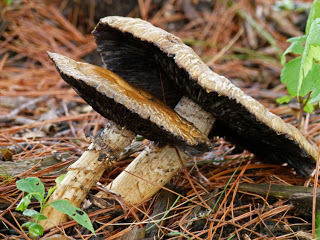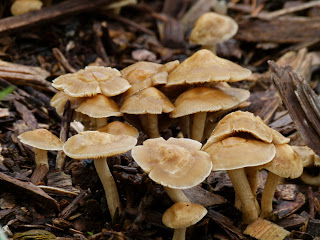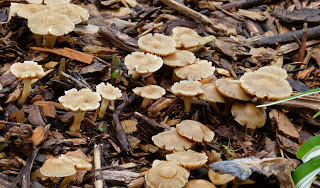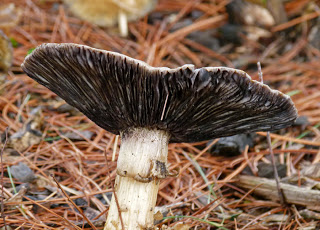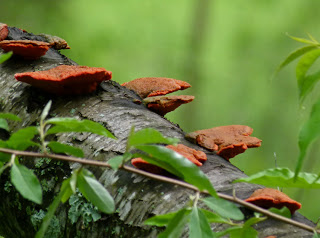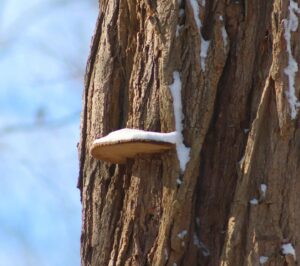Remember the Disney movie Fantasia? One part of this animation set to classical music has little mushrooms dancing around to the Nutcracker Suite as Chinese characters . Louisville’s monthly rainfall total of 13.97 inches for April 2011 easily topped the record for 1970 April rainfall total of 11.10 inches, and as I walked up the drive at the Preserve, all the mushrooms were having a growth spurt. My mind started seeing fairies using the mushrooms as umbrellas during the downpour.
Other mushrooms make good wash basins for the fairies who don’t care about staying dry. The more water these catch the better. Or perhaps these were the fairy umbrellas blown inside-out by a wind gust.
But it looks as if some of the mushrooms themselves want to shelter beneath their neighbors’ overlapping caps.
The fairies might use these mini-mushrooms as dinette tables.
Reproductive spores are produced from the gills on the underside of a mushroom, although they are too small to be seen with the naked eye. The main body of a fungus is usually hidden underground.
Jelly fungi have a gelatinous to rubbery feeling when moist, then shrivel in dry weather. This one is called Witch’s Butter. Next time you see some, go ahead and touch it. You will be surprised at its texture!
Identifying fungi is just as hard as learning to identify flowers or birds, but maybe more so since an entirely different set of terms is required to describe fungi. This one may be a cinnabar polypore, but for now I’ll just think of it as a red shelf fungus. People who study fungi are called mycologists. Current estimates put the number of species in this kingdom at 1.5 million, compared to 250,00 species of flowering plants. Maybe when I get to be an expert at birds, wildflowers, butterflies and dragonflies I can take on the study of fungi. Until then, I’ll just marvel at them, and appreciate their role in the food web. And as fairy houses!

